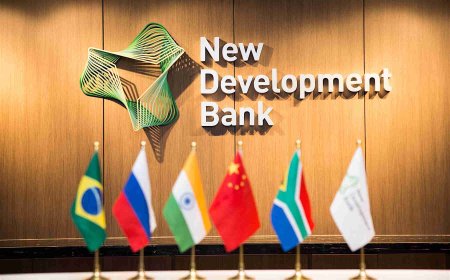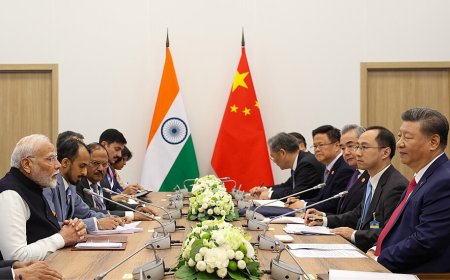Editor’s note: This commentary is published in collaboration with the University of Johannesburg.
Highlights
- Numerous countries around the world and the African continent have migrated most of their payment processes to digital formats, decreasing dependence on paper currency.
- Although South Africa’s commercial environment is advanced and stable, it has many challenges around safety and security.
- South Africa should adopt a culture of virtual payment and take advantage of the relatively low barriers to entry and its high mobile phone penetration. This would diminish the risk of cash-in-transit hijackings, which have been rising in recent years.
- 4IR technologies can supplement South Africa’s current interventions geared towards enhancing intelligence gathering and shortening response times by the police.
The rise of technology has shaped economic development throughout history. From the First Industrial Revolution in the eighteenth century to the Fourth Industrial Revolution (4IR) in the present day, new and innovative inventions have been developed to resolve various challenges. The Second Industrial Revolution, beginning in the 1850s in the United States (US), introduced new technologies underpinned by steel production and electricity that birthed the production of automobiles and airplanes. The Third Industrial Revolution saw innovations in electronics, telecommunications, and computers. Manufacturing processes became faster and more precise through digitalization, pushing humanity towards space exploration and biotechnology. The Fourth Industrial Revolution, currently underway, fuses the biological, physical, and digital spheres through artificial intelligence (AI), big data, 5G high-speed connectivity, cloud computing and robotics. Whereas the Second Industrial Revolution produced new forms of transportation, the vehicles needed to be operated physically. The 4IR, on the other hand, utilises Information and Communication Technology (ICT) infrastructures to automate these processes, introducing the possibility of driverless transportation.
Such innovations in technology also directly impact global financial structures. Whereas money historically took on the tangible forms of gold, silver, and metal, this later advanced to paper money for easier transportation. Computer technologies made it possible for commercial banks to introduce electronic money. The 4IR is facilitating a shift towards digital money through cryptocurrency based on blockchain, leading to a surge in companies operating in Fintech (financial technology).
Credit: via Google images
Some European countries have made significant changes away from cash in favour of digital currencies. The use of Fintechs in the UK increased by 21% each year between 2011 and 2016. UK Fintechs such as Clear Score and Bitsmap access cryptocurrency to challenge traditional credit bureaus and cash industries. This technology has been embraced to the extent that some estimates indicate that 96% of currency in the UK is solely digital. This reflects the diminishing role of physical currencies seen throughout other EU nations like Sweden and Denmark, where cash payments make up only 3% of detected transactions.
Elsewhere in China, the e-commerce industry is growing. China’s e-commerce industry is currently valued at USD 2.1 trillion and constitutes 14% of its USD 14.7 trillion economy. Platforms such as WeChat aim to facilitate the shift towards electronic payments through social media with payment features integrated into the app. WeChat has Quick Pay, QR code and in-app web-based payment services for users to make purchases with their smartphones. Alibaba and Tencent have also utilised facial recognition software for payment purposes, further eliminating cash in Chinese society.
Mobile payments continue to integrate previously disconnected elements of the whole economy in Africa by bridging the gap between well-developed urban infrastructures and rural areas. Digital currencies permit faster and reliable payments than wire payment transactions, which usually take several days to process through financial institutions. People in rural areas, particularly those without bank accounts, can enjoy less expensive transactional fees through a digital approach.
In 2017, the Somaliland shilling was deeply depreciated, and 9,000 shillings was worth one US dollar. This forced citizens to carry large quantities of cash around with them, making them more vulnerable to the risk of robbery. As a result, the Somaliland population took steps to ensure that the country mainly became cashless in its economic activity through mobile payment platforms. Citizens there make about 34 mobile payments per month. Elsewhere in Africa, the use of mobile phone-based money transfer services like M-Pesa has significantly increased over the past decade. In Kenya, 87% of the population now access the service compared to only 14% in 2006. This clearly illustrates the opportunities generated by growing digital innovation and investments in Africa. Rapid technological shifts have become fertile ground for innovation.
Africa represents 16.72% of the global population, which is set to increase over the coming decade, presenting vast policy implications for financial services. The population of workers (25-64 years) will grow, and innovative approaches to technology will accelerate economic growth. South Africa has been eager to adopt advanced technologies to confront some of its economic challenges, yet some discernible factors continue to derail the growth of its e-commerce market. These include banking charges from cashless payments and a bias against small-medium and micro-enterprise (SMMEs) by lenders who favour big corporations. Emerging traders that might otherwise benefit from e-commerce technologies find it difficult to enter the market due to a lack of funding. Strict labour laws in South Africa discourage investment, and its workforce lacks sufficient education in business administration. Internet data services are also relatively expensive in South Africa, with 1 gigabyte selling for USD 2.67, compared to USD 4.21 globally.
According to the South African Banking Risk Information, there were over 287 attacks on ATMs and 243 cash-in-transit (CIT) heists in 2019. ATMs were also a major target during a looting spree that gripped the country in July 2021 following the arrest of former president Jacob Zuma. Rioters also targeted malls and factories, leaving behind damages estimated at USD 3.4 billion. This presents a compelling case for changing South Africa’s supply chain and cash culture. So far, the country’s strategy has been to pursue more comprehensive intelligence-gathering strategies that intercept organised criminal groups. The use of 4IR technologies would quell CIT robberies by making the transportation of cash safer and protecting the liquid assets of businesses.
Two areas of concern must be improved to propel South Africa’s transition towards a cashless economy: the presence of informal economies and concerns around cybersecurity. Informal sectors comprise over half of the global labour force and more than 90 percent of small enterprises. Most transactions in the South African informal economy are paid for with cash; however, this does not constitute a barrier to digital economic systems in and of itself.
Fears around cybersecurity in South Africa are not unfounded, considering that it has the third-highest cybercrime statistics in the world. This does not necessarily constitute a barrier, considering that China has increasingly fostered its e-commerce environment despite coming first in worldwide cybercrime statistics. In light of this, there are no discernible reasons for South Africa to refrain from adopting 4IR technologies in fighting CIT robberies and reducing cash dependency. A more global concern around trust seems to stem from introducing digital financial structures to any context. This can be seen in the case of Germany, which enjoys a 94% internet penetration rate and boasts a growing Fintech industry with investments reaching €676 million between 2018 and 2019. Despite this, 49% of Germans prefer cash payments over the use of credit cards. This illustrates a reluctance of German citizens to adopt new technologies in dealing with their finances, leaving Fintech exclusively to the use of business elites. Broader issues such as these demand consideration on a global level for the successful integration of 4IR technologies into today’s economic landscape. 4IR technologies have the potential to make South Africa a safer environment for its citizens and businesses, enhancing its status as an investment-friendly country.
About the Authors
Johannes Sekgololo is a master’s candidate at the University of Johannesburg Department of Politics and International Relations. His work on cybersecurity has appeared in national media in South Africa, including the Mail & Guardian and The Independent.
Nomzamo Gondwe holds a masters from the University of Johannesburg Department of Politics and International Relations. She has contributed to publications on governance, diplomacy and social justice.
Bhaso Ndzendze is a visiting research fellow at APRI and is Head of the Department for Politics and International Relations at the University of Johannesburg.





